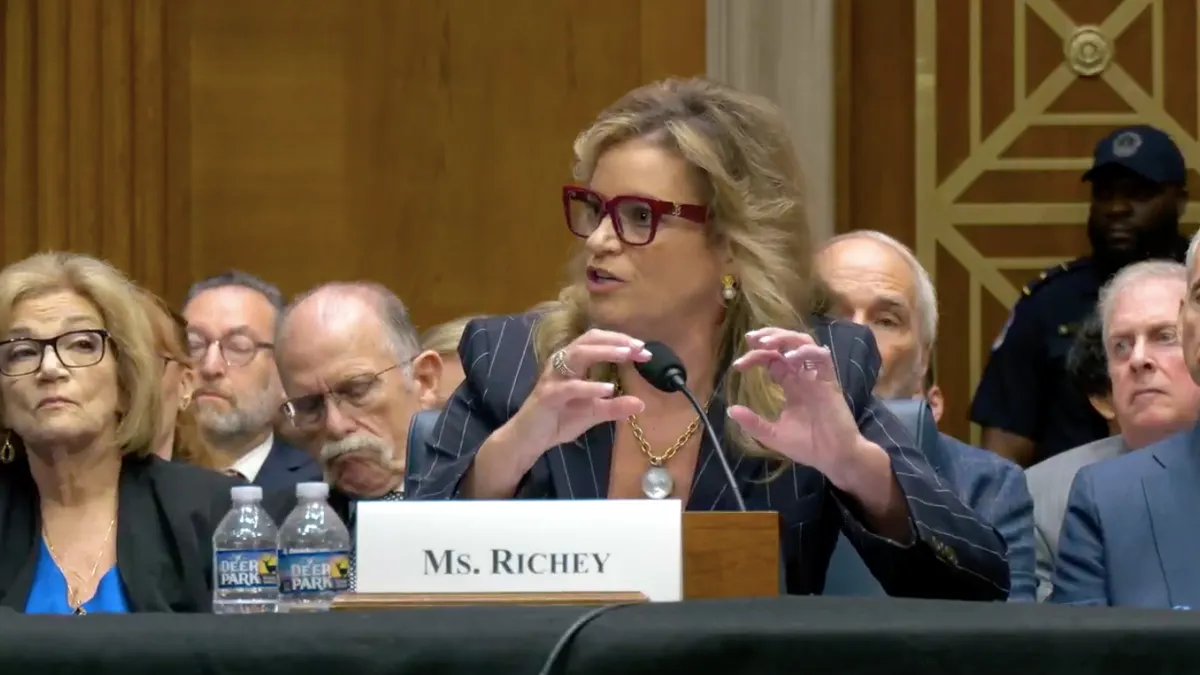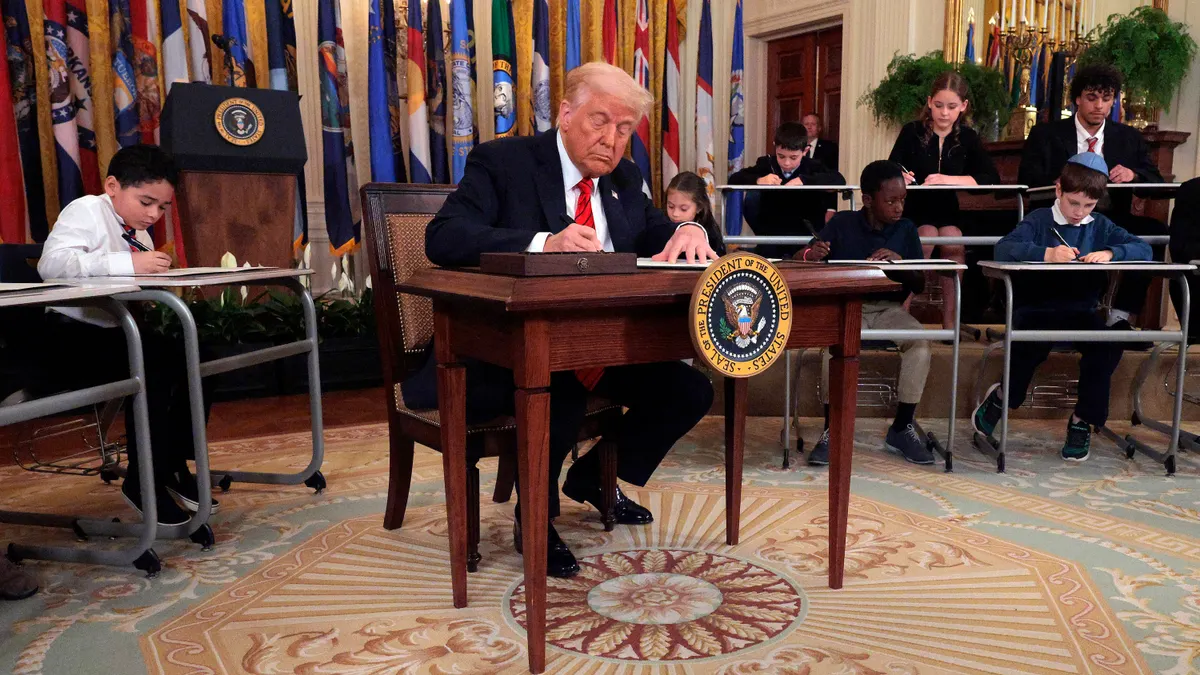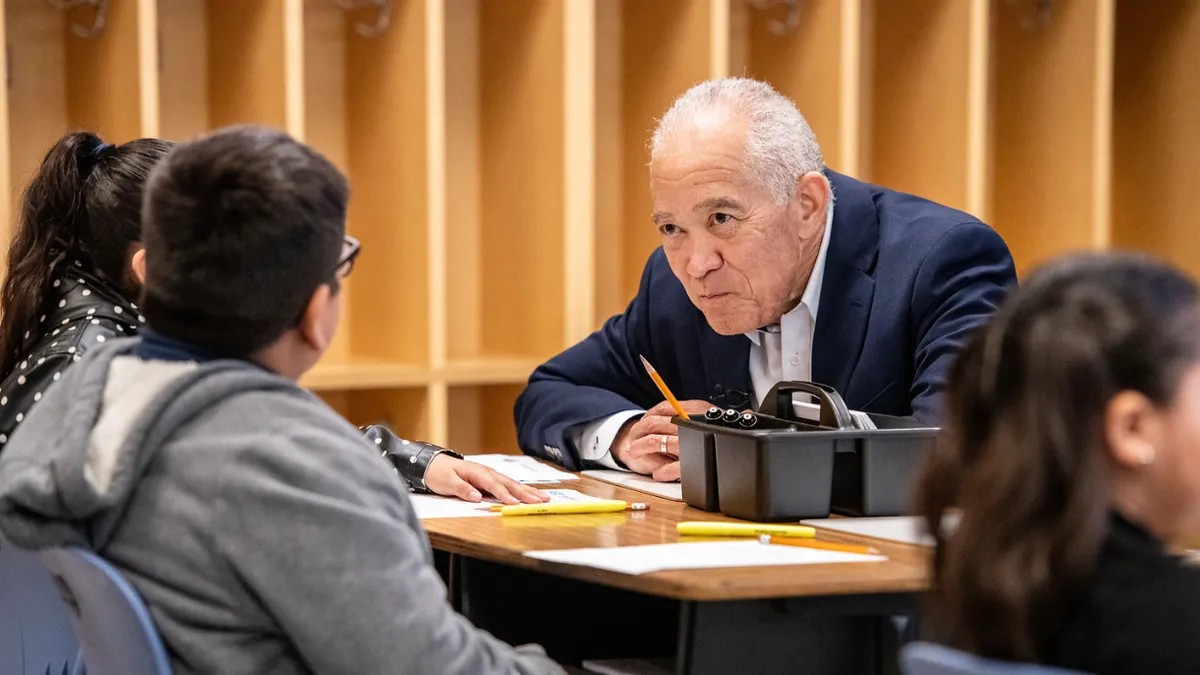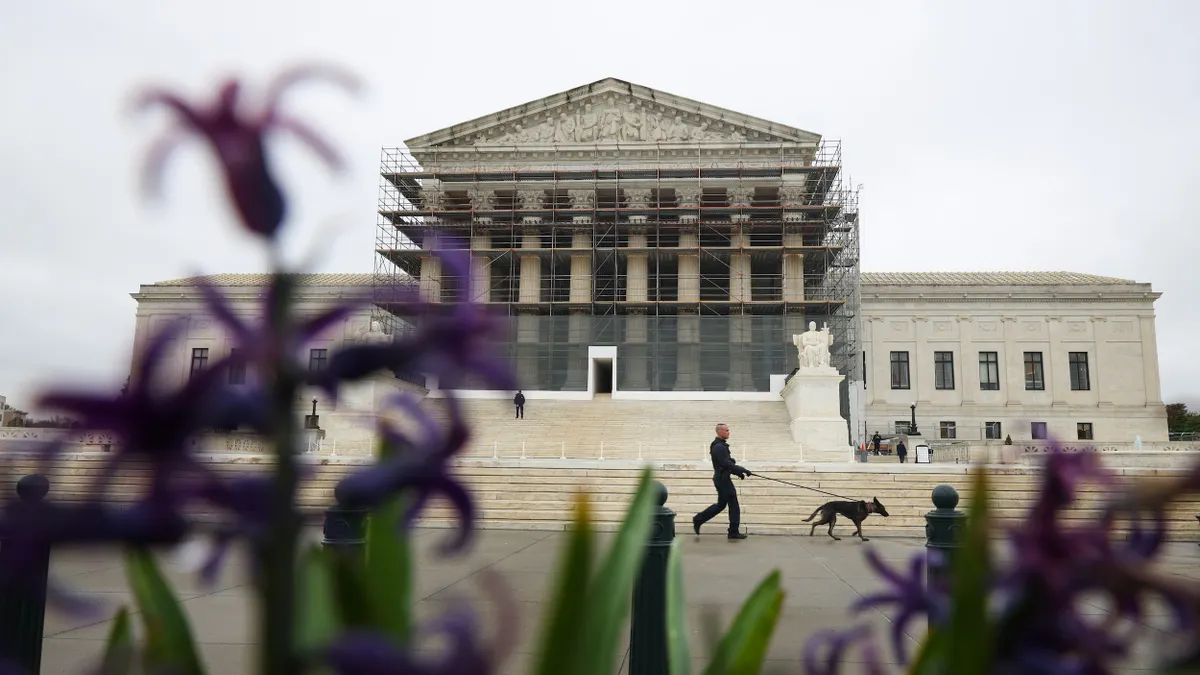The U.S. Department of Education's Office for Civil Rights is undergoing a slew of changes, including a significantly increased caseload after the Trump administration let go of hundreds of its employees. With the nomination of Kimberly Richey to fill the role of assistant secretary for civil rights, it's likely the office tasked with enforcing equal educational access will shift even more.
Right now, attorneys are juggling on average 115 cases, according to Sen. Patty Murray, D-Wash., who shared the number with witnesses at a Thursday nomination hearing held by the Senate's Health, Education Labor and Pensions Committee.
Prior to the March layoffs that resulted in the shuttering of seven out of 12 OCR offices nationwide, attorneys tasked with protecting the civil rights of students and educators had about 42 cases on their plate. That caseload was characterized as "untenable" by the former assistant secretary for civil rights, Catherine Lhamon, and had prompted former U.S. Education Secretary Miguel Cardona to advocate for an increase in the office's funding under the Biden administration.
Murray said the newer caseload was now "making it difficult for those investigators to meaningfully investigate discrimination and to protect students' rights."
Thursday’s hearing was held to discuss the nomination of Richey to lead OCR, among nominations of other officials such as Penny Schwinn to be deputy secretary of education. Richey served under the first Trump administration as acting assistant secretary for the Office of Special Education and Rehabilitative Services and then as acting assistant secretary for civil rights.
Being ‘strategic’ with resources
When asked by multiple Democratic senators about how she would navigate a backlog of OCR complaints — which exceeds 25,000, said Murray — with half of the office’s former headcount and a budget that would be significantly slashed under President Donald Trump's FY 26 proposal, Richey said she would have to be "strategic."
"One of the reasons why this role is so important to me is because I will always advocate for OCR to have the resources to do its job," said Richey. However, she dodged questions about whether OCR, under Trump's first administration, had enough resources to do its job.
"I think that what that means is that I'm going to have to be really strategic if I'm confirmed, stepping into this role, helping come up with a plan where we can address these challenges," she said.
That would include evaluating the current caseload and determining where complaints stand in their investigative timeline. It would also include looking at the current staff distribution and organizational structure of OCR, and helping Secretary of Education Linda McMahon come up with a plan to "ensure that OCR is able to meet its mission and its statutory purpose to prioritize all complaints."
Richey said that rather than put certain investigations on pause, as has been the case under the second Trump administration, she would prioritize all complaints that fall at OCR's footsteps.
Changes in Title IX enforcement
Richey raised the eyebrows of some Republican leaders when she said that she would enforce Title IX, the anti-sex discrimination statute, to protect LGTBQ+ students from discrimination based on gender identity and sexual orientation. The Trump administration and Republican leaders have prioritized enforcing the statute to exclude transgender students from women’s and girls' athletics teams, locker rooms and other facilities.
When pressed, however, Richey clarified that she would enforce Title IX to protect LGTBQ+ students in a narrow number of cases, related to different treatment, bullying and harassment.
"We would also look at the relevance of sex in our cases," Richey said. "Sex is relevant in regards to restrooms, and sex is relevant in regards to locker rooms and sex is relevant in regards to athletics."
The Biden administration's interpretation of Title IX following the Supreme Court's decision in Bostock v. Clayton County protected LGTBQ+ students, including transgender students, on athletic teams in some cases. It prohibited blanket bans of transgender students from athletics.
"That is not what we did under President Trump's first term, and that is not what we will do under President Trump's second term," she said.
Will OCR threats to federal funding continue?
As for whether educational institutions should expect OCR's threats to federal funding to become the new norm, Richey didn't give a clear answer.
"I cannot speak to current actions that have been taken by the department," she said when pressed about whether she would reverse the federal funding cuts made by the administration after short and targeted Title VI investigations related to antisemitism and Title IX investigations related to transgender athletics policies.
Maine, for example, currently faces a cut of up to $864 million in a case referred to the Department of Justice by the Education Department over the state's athletic policies allowing transgender students to play on girls' and women's sports teams. Additional investigations have been opened in Minnesota and California.
In March, the administration also threatened to cut $9 billion in federal funds for Harvard University over what the administration claimed was a failure to protect Jewish students from antisemitism. By May, it had cut over $450 million in grants from Harvard, revoked its ability to enroll international students, and threatened to cut an additional $3 billion in federal grants.
Such threats have not been empty. Columbia University, for example, lost millions in federal grants and contracts, also over antisemitism investigations that Democratic leaders and some civil rights organizations have called "politically motivated."
While Richey did not mention whether she supports those pending cuts, she said she believes antisemitism in schools has worsened since her first run at OCR and that there are a number of "tools" to help curb it, including issuing guidance "in a post-Oct. 7 world."
"The climate is very different than what it was 5 years ago, 4 years ago, 3 years ago," she said. "I think we look at the Title VI regulations to specifically address antisemitism."
The HELP committee has yet to schedule a vote on Richey and Schwinn, which will be on the agenda in the coming weeks, after which the nominees will be referred to the full Senate floor for votes.





















